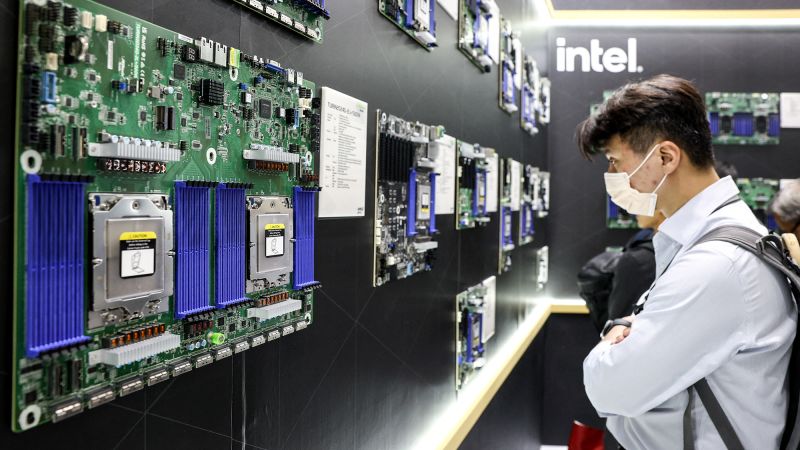The $100 Billion Chip Gamble: How TSMC's US Investment is Shaping the AI Race Between US and China

The global race for artificial intelligence dominance is being fought not just in code and algorithms, but also in silicon. A monumental investment – the largest foreign investment in U.S. history – is at the heart of this battle. Taiwan Semiconductor Manufacturing Company (TSMC), lauded by former U.S. President Donald Trump as the “most powerful company in the world,” is pouring a staggering $100 billion into building advanced chip fabrication plants in Arizona. This move isn't just about economic expansion; it's a strategic maneuver with profound implications for the future of AI and the geopolitical landscape.
Why Chips Matter in the AI Era
AI, particularly the cutting-edge generative AI models that are capturing global attention, demands immense computational power. This power is derived from specialized chips – semiconductors – designed to handle the complex calculations required for machine learning. The more sophisticated the AI, the more powerful and specialized the chips needed. Currently, TSMC holds a dominant position in the production of these leading-edge chips, particularly those utilizing the 7nm and smaller process nodes, which are vital for high-performance AI applications.
The US-China AI Competition
The United States and China are locked in a fierce competition for AI supremacy. Both nations recognize AI as a critical technology for economic growth, military advantage, and global influence. China has made significant investments in AI research and development, but it has historically faced challenges in securing access to the most advanced chip manufacturing technology. U.S. export controls and restrictions on technology transfer to China have further complicated the situation.
TSMC's Investment: A Strategic Response
TSMC’s decision to invest $100 billion in Arizona is a direct response to this geopolitical reality. The investment aims to reduce reliance on Taiwan for chip production, mitigating the risk of supply chain disruptions and bolstering U.S. national security. Furthermore, it strengthens the U.S. semiconductor ecosystem, attracting related industries and creating high-skilled jobs. The new fabs will initially produce 4nm chips, eventually transitioning to even more advanced technologies.
Beyond Economics: Geopolitical Implications
The implications extend far beyond economics. By establishing a significant manufacturing presence in the U.S., TSMC is essentially anchoring a crucial component of the AI supply chain within the American sphere of influence. This limits China’s access to leading-edge chips and strengthens the U.S.'s hand in the ongoing technology rivalry. However, it also creates a complex dynamic. TSMC remains a Taiwanese company, and its global operations are subject to multiple geopolitical pressures.
Challenges and Future Outlook
The investment isn't without its challenges. Building and staffing advanced chip fabs is a complex and expensive undertaking. TSMC faces the challenge of securing a skilled workforce in Arizona, as well as navigating regulatory hurdles and potential supply chain bottlenecks. Moreover, the rapid pace of technological innovation means that today’s cutting-edge chip technology could be obsolete within a few years. Despite these challenges, TSMC's investment represents a pivotal moment in the AI race, signaling a new era of semiconductor manufacturing in the United States and reshaping the global balance of power. The success of this venture will significantly influence the trajectory of AI development and the competitive landscape between the U.S. and China for years to come.






